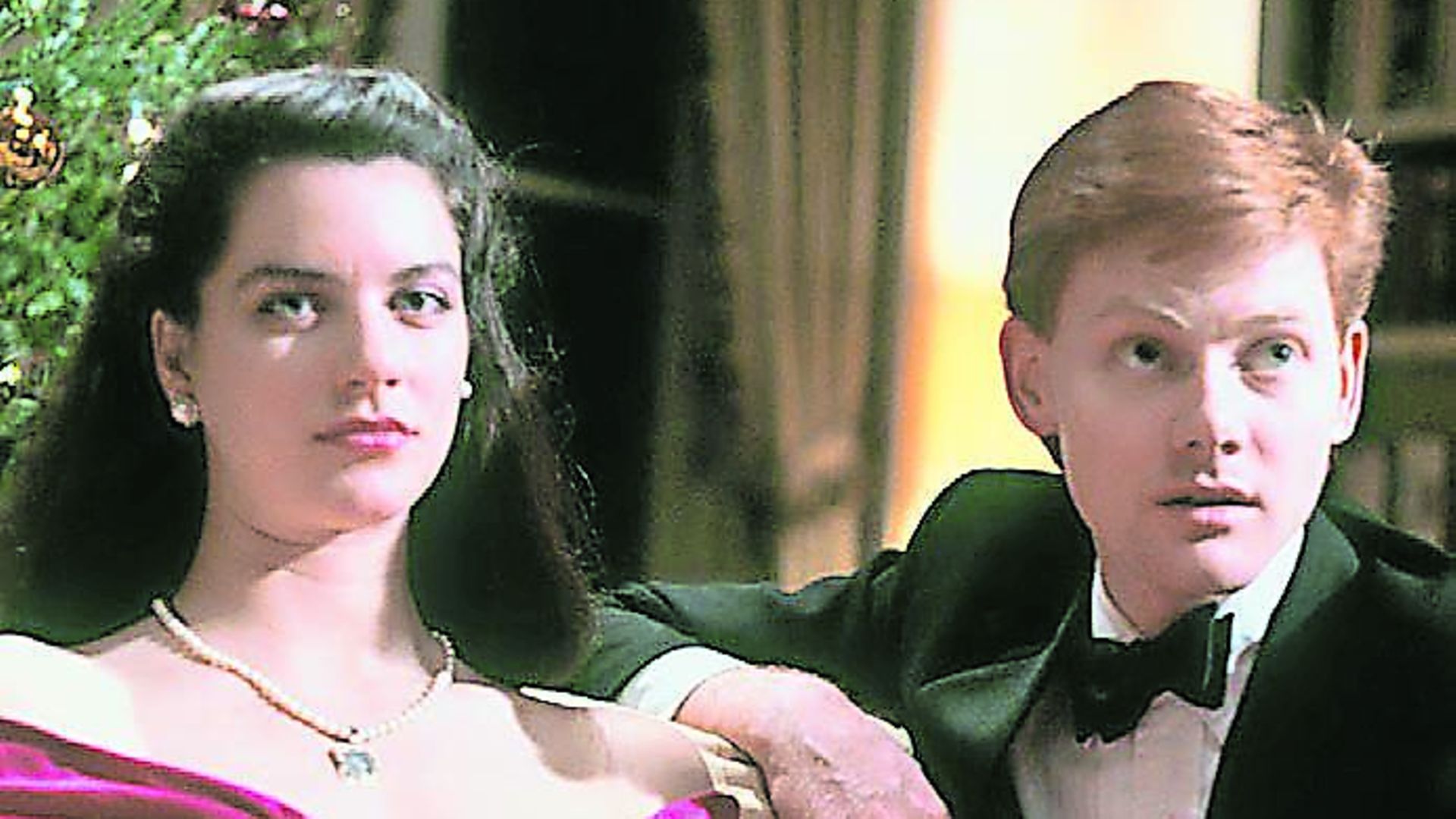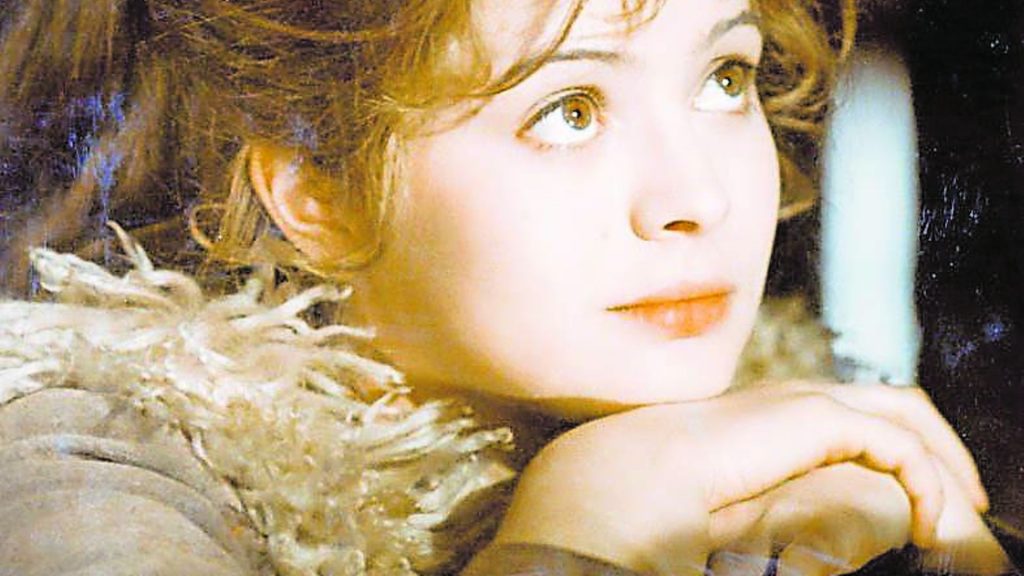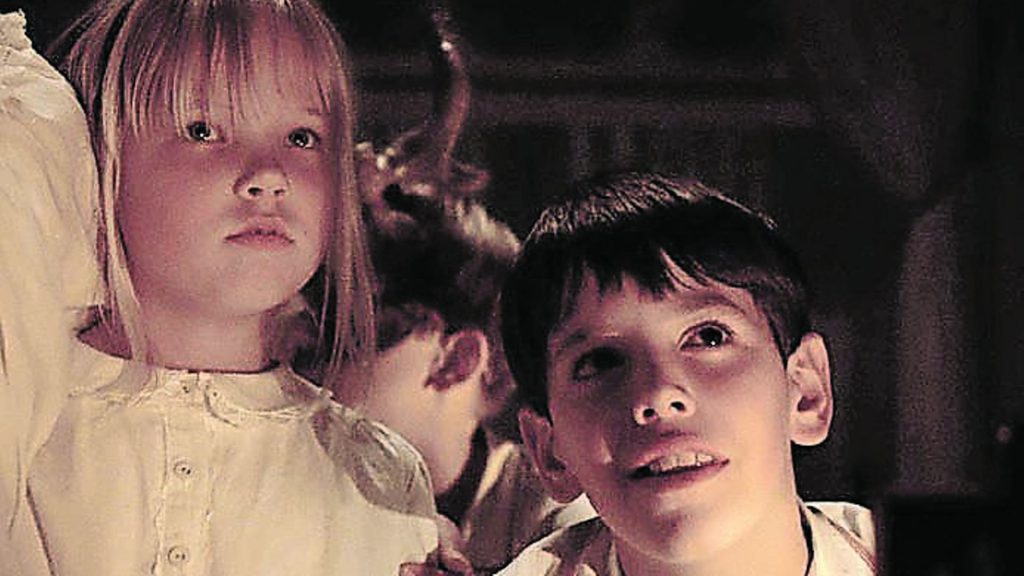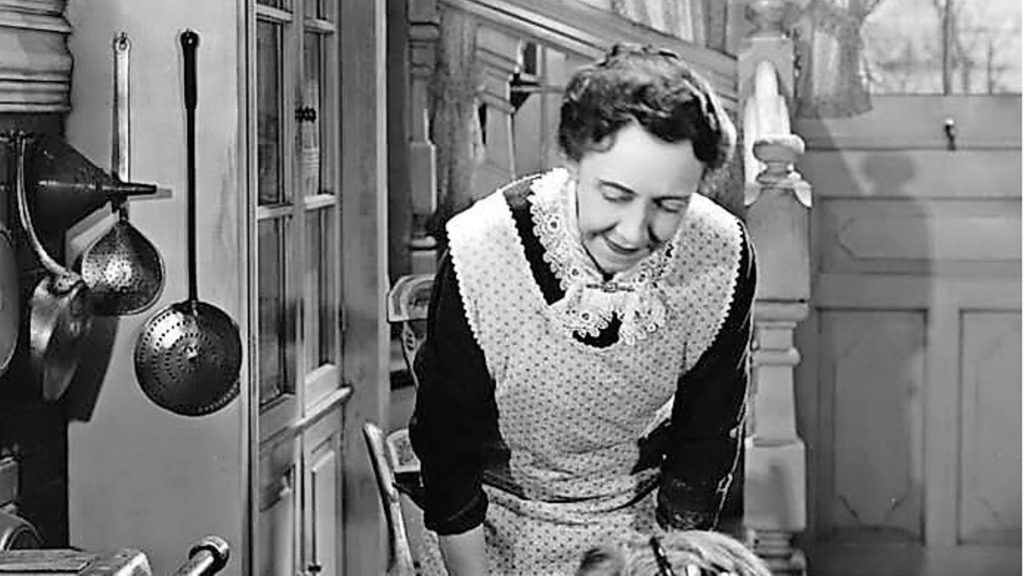
JAMES OLIVER suggests 12 festive movies – a combination of the familiar and the less so – that best reflect the complexities of the season. Just don’t call his list a ‘best of…’
It was always unlikely, in this year like no other, that we’d have anything like a normal Christmas and so it has proved; wassailing has been curtailed, merrymaking placed on hold. Such is life in a plague.
Given the circumstances, you might not care for further reminders of what you’re missing and thus not be much in the mood to watch Christmas films. But it’s worth persevering, for this year such movies are more necessary than ever: at a time when it is otherwise hard to be jovial, here is a way to find the Christmas spirit, even if in more dilute form than we might hope for.
What follows is a selection of Christmas movies to help you find your Yuletide groove. Not a ‘Best of…’ – because festival favourites are even more subjective than other film choices – but a generous helping of some of the finest, some of them familiar, others less so (in this country at least; as befitting this publication, it’s a list that aims to look beyond borders).
These are films made to offer cheer at the dark of the year, reminders that it will start to get lighter soon.
Three Wishes for Cinderella (1973)
As the perennial (and deeply tedious) debates about Die Hard show, there’s no real consensus over what constitutes ‘a Christmas film’. Die Hard is at least set on December 24th; there’s nary a mention of Christmas in Three Wishes for Cinderella (as it’s known on DVD here) and yet for many, it is the definitive festive flick.

Made in the then-Czecholslovakia, this fairytale film became an integral part of Christmas in eastern and central Europe (and, curiously, Norway) during the Soviet era, and it remains so to this day.
It’s not quite the Cinderella story we know – Cinders is called ‘Popelku’ here, and she’s got more sass than she’s usually allowed in pantos – but there is magic and charm galore.
(As for Die Hard, here is the final, definitive ruling: you can count Die Hard as a Christmas film if – and only if – you consider the similarly set Eyes Wide Shut to be one as well. After all, wealthy perverts enjoying masked orgies is every bit as Christmassy as a man in a vest ‘slotting’ terrorists.)
National Lampoon’s Christmas Vacation (1989)
It’s the most magical time of the year! A time where families around the world get together to quaff and feast, to reaffirm the ties that bind! Or not, as the case may be. A film that pointed out how rarely the reality matched up to the idyll was long overdue, and lo! it came to pass with National Lampoon’s Christmas Vacation.
Here, the family Griswold get together and things all go a bit… wrong. The household illuminations cause a city-wide power failure, cousin Eddie reveals himself to be a psycho and they’re unexpectedly joined by a SWAT team. Apart from that, everything’s great.
Metropolitan (1990)
A film set amongst the haute-bourgeoise of Manhattan is probably a bit unfashionable in 2020, given that we’re all meant to be checking our privilege at least a couple of times a day. But when a film is as witty and well-observed as this, it’s easy to be forgiving.
It follows an ordinary young man called Tom who finds himself attached to a group of upscale New Yorkers on their Christmas social circuit; like Tom himself, we might feel like outsiders in this rarified world at first but soon enough, a love story begins to develop: things get a whole lot more universal, and really rather sweet. So call a Christmas truce on the class war and just enjoy it.

It’s a Wonderful Life (1946)
The most famous and best loved of Christmas films, but also the most misunderstood. Although the ending – which shows a proper Christmas miracle in action – is amongst the most euphoric there is, much of the film is very dark indeed.
You know the plot, right? A desperate man is shown what the world would be like if he had never been born and realises he made a real difference after all.
But before we get there, we’re shown what the world is like with him in it. His life amounts to failure and frustration, and until a pesky angel gets in his way, he means to end it, and on Christmas Eve too. This is not, then, conventional Hollywood fare. Indeed, it’s virtually the only film from the American Golden Age where the villain gets away scot free.
It earns its victories – and its status as the ultimate feel-good movie – by being honest and heartfelt. There’s no saccharine here; just an acknowledgement that some people have it tough and that they deserve better.

The Shop Around the Corner (1940)
An awkward film, this. Not for the quality of the film – far from it. It’s quite possibly the best Christmas-set rom-com that ever there’s been, directed by Ernst Lubitsch, who did these things better than anyone else, and starring James Stewart and Margaret Sullavan. They play the fractious co-workers at a shop, who don’t realise that the other is the anonymous pen-pal who has captured their heart (if that sounds familiar, it’s because you’ve seen You’ve Got Mail, a direct remake). It climaxes at Christmastide and it’s gorgeous.
So why is it awkward? Because it’s set in Hungary. At the time when it was made, Budapest was hardly the jolly place it seems here and those of us who worry about these things are forced to ponder the interface of life and art.
Lubitsch himself recognised this; his next film – To Be or Not to Be was set in the Warsaw ghetto (it’s a comedy too!) but the problem of this film remains. Do we take it as the most perfect escapism? Or a film that purposefully sticks its head in the sand?
Meet Me in St. Louis (1944)
Unusually for a Christmas film, Meet Me In St. Louis begins in high summer. Then it moves on to Halloween before finally landing at Christmas. This, though, is the most important part.
Set in the early years of the 20th century, the film concerns the Smith family, most especially Esther, played by Judy Garland. They live in St Louis. They are very happy in St Louis. But everything is upended when Esther’s father gets an offer of work in New York, and everything is thrown up in the air. Will this be their last Christmas at home?
This all might sound rather slight, and in the grand scheme of things it probably is, but this year has reminded us just how important ‘family’ and ‘home’ really are (as they were when the film was first released; it was the biggest hit of the year in a country yearning for the end of war).
It all comes to a head with Judy singing Have Yourself A Merry Little Christmas, a far sadder song than you remember. “Through the years we all will be together/ if the fates allow”. It could be an anthem for this year too.
Tangerine (2015)
Upon its first release, Tangerine attracted attention for the way it was shot (the budget didn’t stretch to a camera, so they used an iPhone instead), for its subject matter (it’s about a pair of transgender prostitutes) and even its casting (its leading ladies were themselves transgender prostitutes).
What got overlooked was what an exceptional film it was and is, vibrant, funny and profoundly humane. It’s set on the night before Christmas, and you might think this is the director trying to be subversive and/ or ironic, but no; it ultimately affirms the spirit of the season in the sweetest way it can, with a heartfelt celebration of friendship and love. Possibly not quite family entertainment but the best Christmas film of the last few years nonetheless.
Bad Santa (2003)
The sentiment and sanctimony of Christmas makes it an easy target for cynics, and those of a miserly disposition might find Bad Santa to their taste. This is the heartwarming story of an alcoholic career criminal who takes the role of Father Christmas at a mall, even though he does not much care for children (or, indeed, grown-ups).
The title does not lie; he really is a very bad Santa (he plans on robbing the mall once everyone’s gone home for the holidays on Christmas Eve. Ho! Ho! Ho!) And yet this isn’t quite the misanthrope’s delight it might at first seem. There’s this kid, see. He – bewilderingly – takes a shine to Santa, and dimly stirs a long buried conscience… What follows isn’t exactly A Christmas Carol, but it ends a bit closer to “God bless us, every one!” than to “Bah! Humbug!”.
Dinner for One (1963)
Now, here is an oddity, and one that’s not strictly speaking a Christmas film at all; it’s rather more associated with New Year (although that’s within the 12 days of Christmas, right?). It’s only 20 minutes long, a comedy sketch starring by Freddie Frinton, an all-but-forgotten comedian from the twilight of music hall who plays a butler serving his mistress upon her 90th birthday, something that would be a good deal more straightforward if his duties didn’t oblige him to become progressively more drunk (long story).
Frinton originally performed it on stage as part of his act, and it was seen by a pair of German producers who took it upon themselves to commit it to film. Originally broadcast in 1963, it was re-shown on New Year’s Eve 1972 and thereafter became an essential part of the celebrations, an annual – and much loved – ritual.
It has spread across Europe but remains obscure in its home country, where old skool slapstick has long been out of fashion. We should be prouder, most especially those of us who still cherish our attachment to Europe; it is a reminder, after all, of how culture can connect us to the continent.
Maybe Remainers ought to start making it a ritual of their own.
Remember the Night (1940)
The trouble with rom coms is that they’re so unbelievable. Take Remember the Night. More sensibly minded people would watch it with disdain, pointing out how implausible the plot is: would an assistant district attorney really feel sorry for the woman he was prosecuting? And even if he did, he certainly wouldn’t free her from a Christmas in the cells and take her with him when he travelled back to his idyllic rural homestead, would he? And as for falling in love – PHOOEY!
But the sort of people who could pick holes in something as beautiful as Remember the Night deserve our pity, for they are dead-eyed bores with no joy in their hearts. Its director, Mitchell Leisen, is a comparatively unheralded figure but he was a master; he knows that this story is basically phooey too, but that doesn’t stop him trying to believe it’s all possible for as long as he can. Miracles may happen at Christmas, but sadly they don’t always last when things get back to normal.
Fanny and Alexander (1982)
As with Meet Me in St. Louis, here is another family saga that’s only partially set at Christmas. Drawing on his own memories, director Ingmar Bergman begins his epic as the extended Ekdahl clan gather for the celebrations, with feasting, carousing and only a couple of arguments. It is a sequence of purest joy, but it prefaces tragedy.
The title characters are soon to lose their father. Even worse, their mother is to remarry, plighting her troth to the local bishop, little realising what a cold, loveless man he is (he would definitely point out how silly the plot of Remember the Night is). This might not sound terribly festive but stick with it; Bergman was much influenced by Charles Dickens and contrives a wonderful, magical release quite worthy of the great man.
It has become a seasonal staple on Swedish television, but really, this film is for life, not just for Christmas.
The Muppet Christmas Carol (1992)
Talking of Charles Dickens, here we go from the sublime to… well, actually, a different sort of sublime. There have been a great many films of that author’s most famous story over the years, as you expect of a work that pretty much defined Christmas as we know it. It might sound facetious to say the best of them has puppets and silly jokes – but only if you haven’t seen it.
Previous (and later) adaptations all seem somewhat awed by the story’s classic status, treating it over-reverentially. But while Kermit & Co have a healthy respect for Dickens, they’re never afraid of sprucing things up with a gag or several, making the story seem fresh all over again.
It’s not all laughter, though. The more serious bits are played straight and are remarkable effective. And as good as the non-human performers are, it’s Michael Caine as Scrooge that holds the whole thing together; it’s not every actor that can hold his nerve playing opposite Miss Piggy but Caine does it to perfection.









